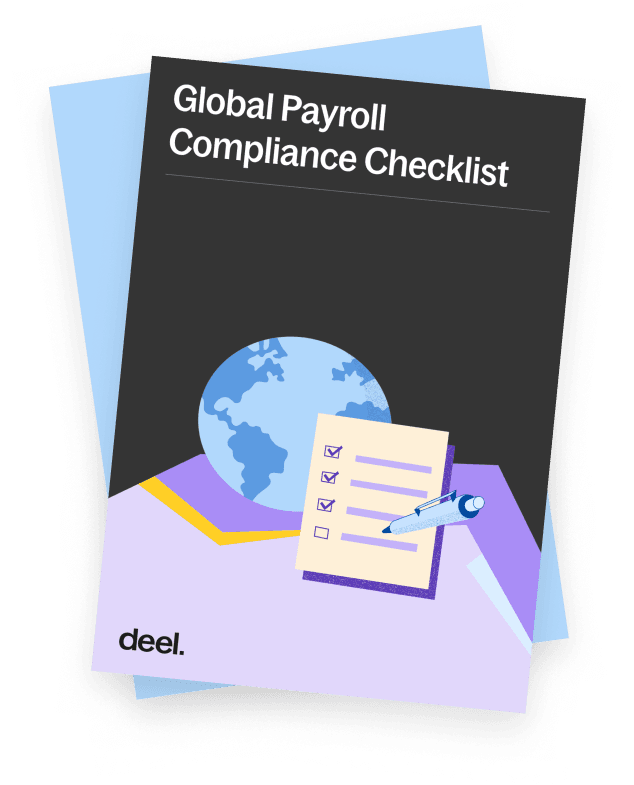Article
7 min read
Borderless Hiring: An Answer to the UK’s Skills Shortage
Global HR

Author
Matt Monette
Last Update
June 05, 2025

Table of Contents
The case for borderless hiring in the UK
Overcoming legal and administrative challenges
Case studies: how British businesses are tapping into the global talent pool
Next steps for borderless hiring
Key takeaways
- Hiring internationally expands access to a broader talent pool, enabling UK businesses to fill critical skill gaps, especially in sectors struggling with domestic shortages.
- Modern HR tech solutions such as Employer of Record (EOR) and Agent of Record (AOR) streamline the legal, administrative, and compliance complexities of international hiring, making global recruitment accessible even for SMEs.
- With Deel, companies can onboard remote talent swiftly, manage payroll and benefits across borders, and scale operations without the need for costly and time-consuming entity setup.
Among the many challenges facing SMEs in the UK as they try to grow, one remains persistent: skills shortages. It’s a pervasive issue hitting a wide range of industries, particularly construction and engineering, healthcare, creative, and technology.
Against the backdrop of headlines dominated by large-scale layoffs at some of the world’s biggest tech companies, this may feel contradictory, with lots of top talent on the job hunt. However, the British Chamber of Commerce's latest Quarterly Recruitment Outlook reveals that 76% of firms attempting to recruit in early 2025 experienced difficulties filling roles, with talent shortages listed as one of the main culprits.
This persistent issue underscores that the problem extends beyond a simple mismatch between job seekers and available positions, highlighting deeper structural challenges in the UK labour market.
It’s time for businesses to look at the bigger picture when it comes to hiring. With billions of people on the planet, no organisation should have to struggle to find the right person for the job. So, the question is, how can an SME in the UK source the appropriate global talent? The answer, in my opinion, is borderless hiring.
The case for borderless hiring in the UK
Benefits: organisational resilience and greater diversity
If UK businesses are struggling to hire in the UK, there is a plethora of highly qualified workers overseas who can be integrated to form a single, high-performing and diverse team. Borderless hiring offers the perfect solution.
Beyond solving the skills shortage, hiring talent overseas comes with additional benefits. Speaking from experience, Deel’s remote-first environment gives us:
- Wider talent pool: We’re able to hire the best people for the job, regardless of their location.
- Faster hiring: Vacancies don’t stay unfilled for long. No matter how niche the skills we’re looking for, a global talent pool allows us to source what we need quickly, which is critical for building momentum and scaling fast.
- Increased diversity: Diversity strengthens our company culture, allowing us to gather a wealth of different perspectives, experiences, and backgrounds.
- Greater agility and resilience: We’re able to quickly adapt to change by swiftly rehiring key positions and quickly bolstering our workforce with extra headcount. We also have the advantage of having Deel staff in all time zones, allowing us to ‘work around the clock’ without staff working unsociable hours.

Trends: Work from home adoption and global hiring increases
The world of work has fundamentally changed. We live in a digitally connected world, where remote working and hybrid teams are now part of everyday life in many businesses.
As I’ve already mentioned, a wide variety of industries in the UK currently face skills shortages. While many roles within those industries require in-person attendance (e.g., doctors, nurses, and construction workers), many do not (graphic designers, software engineers, and admin assistants).
Indeed, domestically, fully remote work is slightly on the decline, with 16% of the UK workforce working fully remotely, overtaken by hybrid workers at 25%. However, organisations looking to hire overseas need to look at data points a little further from home.
In Europe, we see a split between countries where more employees engage in remote work at least part-time (51.9% in the Netherlands, 45.3% in Iceland, and around 42% in Norway and Finland), and others where it is less accepted (23.4% in Germany, below 15% in Italy and Spain). However, when asked about their preference, 74% of EU workers stated that they preferred to work from home. The hunger for remote work across Europe remains strong, making this a rich talent pool for UK organisations looking to offer a remote-first environment in exchange for skills.
While Europe offers an appealing talent pool, especially as it contains many time zones similar to that of the UK, you’ll find even more remote workers further afield. The US remains a reliable source of remote talent – 13.8% of the workforce, roughly four million professionals. In Asia, the adoption of remote work varies greatly across countries, with Singapore and Japan leading the way.
The talent is out there. The question now is, how can UK businesses get to them?
Overcoming legal and administrative challenges
Hiring internationally can pose challenges that need to be considered and overcome. One of the main difficulties is navigating the complex legal and administrative requirements that come with hiring employees from other countries. This includes obtaining work visas and permits, complying with different tax and employment laws, and dealing with language barriers and cultural differences.
Additionally, recruiting and managing remote staff can be challenging, as it requires strong communication skills and the ability to build relationships with employees who may be located in different time zones. Furthermore, the costs associated with hiring remote staff, such as equipment, software, and training, can be significant, especially for small businesses with limited resources.
Solutions to these challenges can be found by combining the latest technology with expert human support. These solutions can help streamline all processes from initial talent search, ensuring that the right talent is attracted, and time is not wasted on unnecessary interviews and background checks, to easing the onboarding process. Experts are available to handle the entire process end-to-end, from visa sponsorship to application processing and compliance checks.
Support can also be found for many other aspects of the international hiring process, including ensuring that the correct contracts are in place, eliminating the possibility of misclassification, managing payroll for overseas employees, and managing holiday allocation and sick leave.
Depending on an organisation’s needs, there are two main options for hiring with flexibility and compliance without going through the hassle of setting up an entity abroad. The agent of record (AOR) and the employer of record (EOR).
Know your options: AOR vs EOR
An AOR facilitates the hiring of contractors, handling worker classification, contract management, payment processing, and ensuring compliance with local regulations. This allows companies to scale up or down quickly, without committing to permanent headcount, and can assist in sourcing niche, specialised skills. For those looking to expand outside of the UK, an AOR also allows businesses to test new markets by engaging local talent for exploratory research.
For businesses that are more invested in growing abroad, without wanting to commit to setting up an entity, an EOR acts as the legal employer. The EOR lifts foreign employment admin from busy teams by handling payroll in compliance with local laws, managing benefits that are on par with what overseas talent expects, and handling contracts while mitigating worker misclassification.
With these tools at their disposal, UK businesses are able to access overseas talent pools quickly and without a heavy administrative burden, while also keeping costs low and sourcing skills that are harder to find closer to home.
Continue reading
Dive deeper into AOR vs EOR in this guide. Discover how they both work, common misconceptions, and get our advice on how to choose between them.
Case studies: how British businesses are tapping into the global talent pool
Many businesses are already implementing borderless hiring, as demonstrated by Deel’s latest State of Global Hiring Report data. We saw a 22% increase in businesses based in Great Britain using Deel to hire across borders. I’ve selected a few that demonstrate how effective modern HR technology can be in helping UK businesses solve their talent shortages and expand into new markets.
How Lloyd’s List Intelligence expanded to new markets with Deel
Lloyd’s List Intelligence, a leading provider of maritime data and analytics, needed to scale its global workforce quickly, but lacked in-house resources to navigate the complexities of hiring across multiple countries. They partnered with Deel to enable compliant hiring in new markets without establishing local entities, and were able to onboard international talent in days, streamline global payroll, and offer competitive local benefits. This allowed the business to access critical skills worldwide, speed up hiring processes, and stay agile in competitive markets, while keeping internal legal and HR teams focused on strategic growth.
We just didn’t have the economies of scale, time, and resources to be able to set up entities in each of those different locations. We went with Deel because they were able to provide us with everything we needed in one platform.
—Hetty Townsend,
APAC People And Culture Business Partner at Lloyd's List Intelligence
Next steps for borderless hiring
Businesses today have access to a vast pool of talented individuals from around the world. Although some minor cultural adjustments may be necessary, the benefits of welcoming international talent are too great to ignore.
With the right HR and payroll partner to help streamline the process, hiring, onboarding, and paying international teams is no longer a barrier. By embracing borderless hiring, businesses can eliminate skills shortages and reap numerous benefits, including accessing business-critical talent, boosting retention rates, establishing regional footprints, and achieving key business goals. Employers who have yet to explore overseas talent should take notice and seize the opportunity to unlock its potential.
Curious about solving your skills shortage with global talent? Start by exploring your options, speaking to a consultant, or talking to one of our in-house experts.

Matt Monette is the Director, Solutions Consulting, Global Payroll at Deel. He has worked at hyper growth SaaS companies most of his career. Most recently, leading Shopify's UK expansion in London to being the VP of Sales at a late stage startup.














